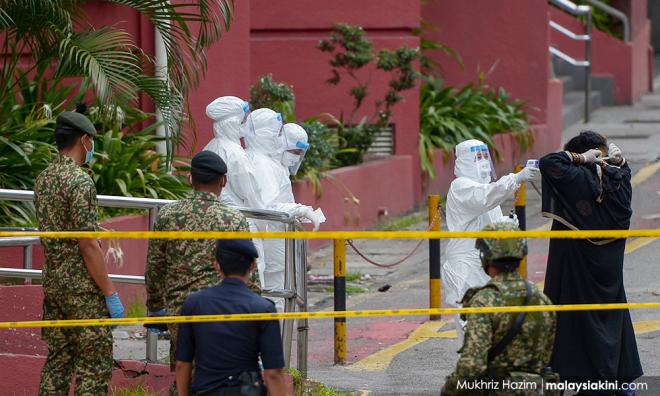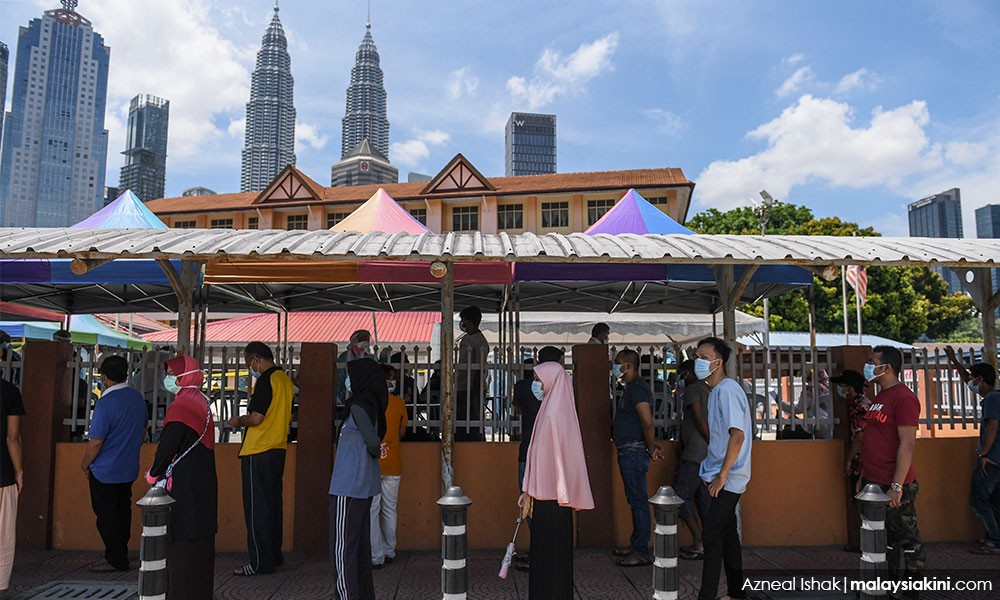
MP SPEAKS | In Malaysia, we are now almost a month into the movement control order (MCO).
The number of Covid-19 positive cases are still increasing beyond 100 cases daily. In fact, the average daily new cases in Phase Two of MCO is higher than Phase One. Perhaps this is due to the increase in Covid-19 tests done by the Health Ministry (MOH).
I hope MOH will also publish detailed daily data on testing to provide a better picture of the situation.
On the other hand, based on the data currently available, Malaysia has recorded an impressive recovery rate, comparable to the better ones in the world at 45.01 percent. At the state level, some states have recorded even higher recovery rates.
For example, three states have recovery rates over 80 percent, namely Kelantan 83.55 percent, Selangor 82.61 percent and Penang 81.03 percent.
Credits must be given to MOH for working hard to ensure the health and safety of Malaysians.
However, there are also states with lower recovery rates compared to the national rate. In fact, some are even lower than the global recovery rate, recording below 20 percent.
As we enter into Phase Three, the question is, are we ready to relax the MCO?
Two key considerations to decide on the MCO: statistics and system
With the federal government’s latest announcement that several sectors will be reconsidered for permission to operate, the government must pay attention to two key criteria before even deciding to lift or even relax the MCO.
I summarise these criteria as 1) statistics and 2) system.
Firstly, we need to look at the current Covid-19 stats. Is the trend heading towards flattening of the curve? In other words, are the numbers showing the epidemic has been brought under control?
Secondly, we need to ensure the preparedness of our system to deal with new cases after MCO is being relaxed. Can our system prevent, track and deal with these cases rapidly at that time?
In other words, to relax the movement control, we have to ensure low Covid-19 stats and high system preparedness.
Malaysia’s situation: Statistics is still high, system preparedness is still low
If we look at the numbers for Phase Two of MCO, the average daily new cases are actually higher than during Phase One. The capacity of each state also seems to be different, judging from the different rates of transmission and rates of recovery recorded so far.
Thus, as a whole, we are definitely not ready to relax, much less, lift the MCO.
Nonetheless, there were suggestions for the government to take a more discriminatory approach towards this, ie to respond based on local situations. For example, MCO can be relaxed for green zones after a period of no new transmission.
Such a strategy can be considered but the second criteria must equally be fulfilled. Our system must be ready.

The government must ensure that if new cases arise, we must have the ability to quickly track down the contacts, conduct testings and implement quarantine to immediately break the chain of infection.
The government must ensure that our equipment, facilities including test centres, intensive care units (ICU) and quarantine centres as well as our manpower are sufficient.
It is now more than two months our frontliners, especially those in government hospitals and clinics, working very hard to fight the epidemic. One important question the government must ask is, are we able to remobilise this same batch of clearly exhausted frontliners if there is a next wave?
One thing I noticed is the low rate of technological adoption in the Malaysian campaign against Covid-19.
For example, up to last week, to my knowledge, other than Sarawak which utilised smartphone application to track self-quarantine, all other states were monitoring self-quarantine manually where patients had to dial-in to the hospital a specific number of times a day to report themselves.
Contact tracing is also done manually here although, in several other countries including Singapore, technology is being utilised to make the process easier and more efficient.
Even if the government decides to relax or lift MCO, public health measures must still be strictly observed in the next three to six months. By then, do we have the mechanism to enforce social distancing in schools, offices, morning markets and other public space?
Do we have enough equipment such as good quality infrared thermometers to be used in these places, especially in schools to check symptoms of Covid-19?
The Penang state government had previously requested the federal government to introduce a new Covid-19 EHS (Environment, Health and Safety) protocol to be implemented by our industry. We cannot risk our factories and business premises using unverifiable and ineffective safety measures.
In summary, is our country ready to deal with the so-called "next normal" situation?
From reports published to date, we have to conclude that the number of cases is still high while our system preparedness is still low.
The government’s current focus to fight the epidemic and to flatten the curve is critical. But the government cannot do just that alone. It must already have a comprehensive exit plan by now.
Its frame of strategic thinking must not be limited to the daily announcements and press conferences by cabinet ministers but must be expanded to think about strategies to deal with the "next normal".
If we fail to plan today, it is as good as we plan to fail tomorrow.
- Covid-19 data in this article is based on MOH statistics as of April 12.
STEVEN SIM is the MP for Bukit Mertajam and he leads the “Penang Lawan Covid-19” campaign focusing on communication and community empowerment. - Mkini


I think there are benefits to relaxing MCO to allow for Darwin Award to be handed out en mass.
ReplyDelete